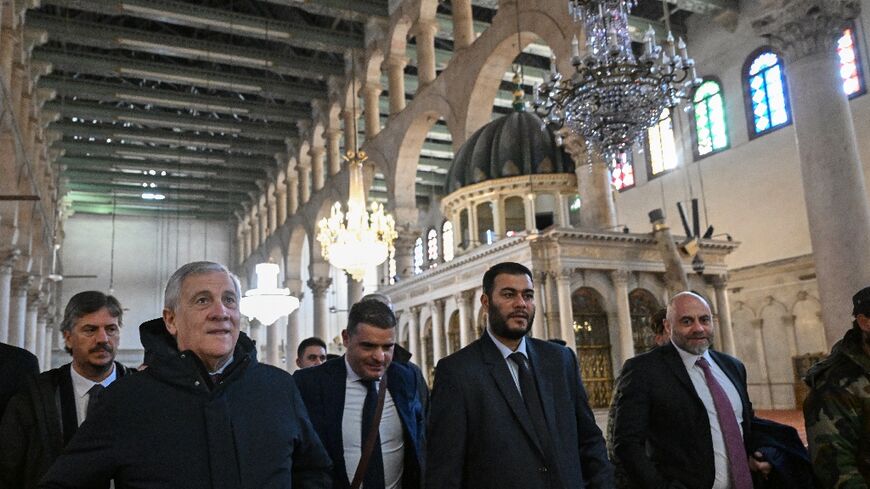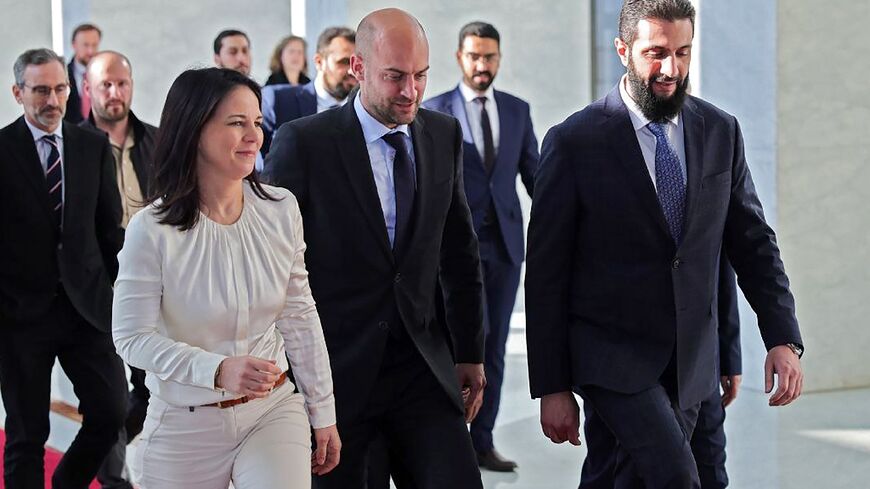Blinken seeks to avert Syria turmoil with Europeans on final trip

US Secretary of State Antony Blinken agreed Thursday in talks in Rome with European counterparts on the need to encourage stability in Syria, officials said, as Turkey threatens Kurdish forces in the war-torn country.
Blinken was on the last leg of what likely is his final trip as the top US diplomat before President Joe Biden makes way for President-elect Donald Trump later this month.
On a trip that already took him to South Korea, Japan and France, Blinken headed to a Renaissance-era villa in Rome for a working dinner on Syria.
Italian Foreign Minister Antonio Tajani, speaking to reporters as the talks opened, said Western powers were seeking a "stable and united Syria" a month after Islamist-led rebels toppled longtime ruler Bashar al-Assad.
The Western powers agreed on the need to protect minorities after the fall of Assad, who ruled with an iron fist but was largely secular.
The officials also called for "all groups in Syria to respect human rights, uphold international humanitarian law" and ensure Syria does not pose a threat to its neighbours or serve as a base for terrorism", State Department spokesman Matthew Miller said.
Concerns have mounted over Turkey's threats against Syrian Kurdish fighters, who have effectively run their own state during the brutal civil war engulfing Syria.
A war monitor said that battles between Turkish-backed groups supported by air strikes and Kurdish-led forces killed 37 people Thursday.
The Kurdish-led Syrian Democratic Forces (SDF) have worked with the United States on battling the Islamic State extremist group. Turkey, however, says the SDF has links with the Kurdistan Workers' Party (PKK) separatist militants at home.
In Paris, Blinken acknowledged that Turkey had "legitimate concerns" and that the SDF should gradually be integrated into a revamped national army, with foreign fighters removed.
"That's a process that's going to take some time," he told reporters Wednesday. "And in the meantime, what is profoundly not in the interest of everything positive we see happening in Syria would be a conflict.
"We'll work very hard to make sure that that doesn't happen."
- The sanctions question -
The Rome talks also brought in UK Foreign Secretary David Lammy and EU foreign policy chief Kaja Kallas along with senior officials from France and Germany.
Ukrainian President Volodymyr Zelensky separately arrived in Rome for talks with Prime Minister Giorgia Meloni.
Zelensky had been expected to meet in Rome with Biden, who cancelled a trip due to wildfires that are ravaging Los Angeles.
The Rome talks will also discuss whether to ease sanctions on Syria -- and if so, when.
"We have to address the issue of sanctions. They are not a given, because the political situation has changed," Tajani said.
French Foreign Minister Jean-Noel Barrot said Wednesday that some sanctions "could be lifted quickly".
The United States said this week it would ease enforcement on restrictions affecting essential services, but US officials say they will wait to see progress before any wider easing of sanctions.
- Differences -
While Western powers are largely in synch on Syria, some differences remain.
Blinken reiterated US calls on European countries to repatriate citizens detained in Syria for working with the Islamic State group and languishing in vast camps run by the Kurdish fighters.
France and Britain, with painful memories of attacks by homegrown Islamist extremists, have little desire to bring militants back.
The Rome talks come a week after the French and German foreign ministers, Barrot and Annalena Baerbock, visited Damascus and met new leader Ahmed al-Sharaa to encourage an inclusive transition.
A senior US official last month met Sharaa and told him that Washington was ending a $10-million bounty on his head.
Tajani will pay his own visit to Syria on Friday, during which he plans to announce an initial development aid package.
Italy's hard-right government has pledged to reduce immigration. Millions of Syrians sought asylum in Europe during the civil war, triggering a backlash in some parts of the continent that shook up European politics.
Unlike other major European powers, Italy had moved to normalise ties with Assad just weeks before his fall, mistakenly assuming that he had effectively won the war.




